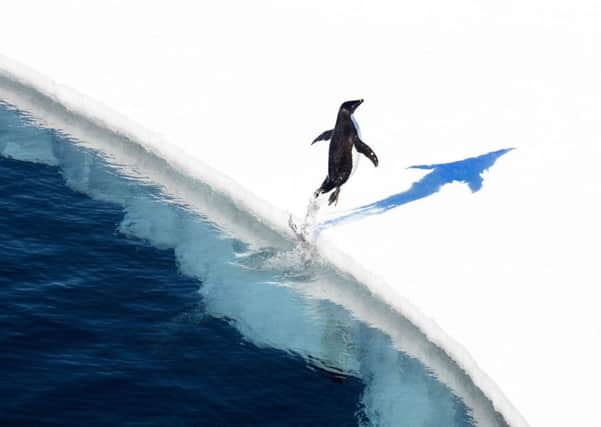Leader comment: Speedo diplomacy victory shows hope for Russia


It was Sir James who first discovered what was to be named the Ross Sea in Antarctica in 1841. But if the vitally important Ross sea owes its discovery to a British naval captain, it now owes its safeguarding to another adventurer and explorer, Lewis Pugh.
Yesterday delegates from 24 countries and the European Union agreed that the Ross Sea, declared to be the Earth’s most pristine marine ecosystem, will become the world’s largest marine protected area with commercial shipping banned for 35 years. That is a remarkable feat that has taken years of protracted negotiation.
Advertisement
Hide AdAdvertisement
Hide AdThe Ross Sea is home to enormous numbers of krill, on which whales and seals among others depend, but it is feared that overfishing and climate change are having significant impacts on their numbers.
Agreement has only now been reached due to a massive change of stance from Russia, and that country has been the target of considerable lobbying by Mr Pugh in what would usually be recognised as a very eccentric form of diplomacy; diplomacy exercised through the medium of wild water swimming.
Mr Pugh became an adventurer after turning his back on a law career in London. Two years ago he decided to undertake a series of swims in the sub-zero waters of the Ross Sea to highlight their importance, and then try and persuade Russia to back the formation of a Marine Protected Area. He undertakes all of his swims according to Channel Swimming Rules in just in a Speedo costume, cap and goggles. It became known as Speedo diplomacy, and it has worked.
Yesterday Sergei Ivanov, Russian President Vladimir Putin’s special representative for ecology, welcomed the new deal that put Russia at the heart of this collaborative international effort to safeguard the Ross Sea.
There are many levels at which this protection of the Ross Sea should be celebrated. First the demonstration that one man can make a global difference, if he is determined and dedicated. Secondly the Ross sea and the world’s oceans are immediately better off.
But it also gives hope for the future. This could be the forerunner of a great many international treaties to protect the world’s most remote regions. And it shows a side of Russia not seen in the Middle East and other places around the world that gives a little cause for optimism on how it sees its place in the international community.
Sir James would see a fellow adventurer and fellow achiever in Mr Pugh.